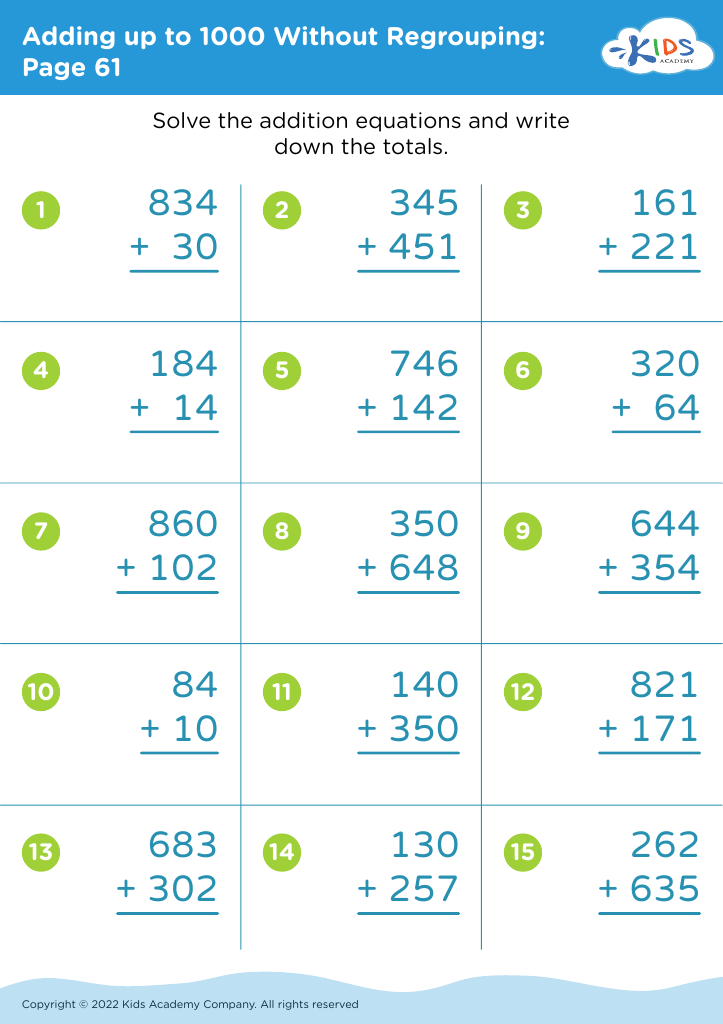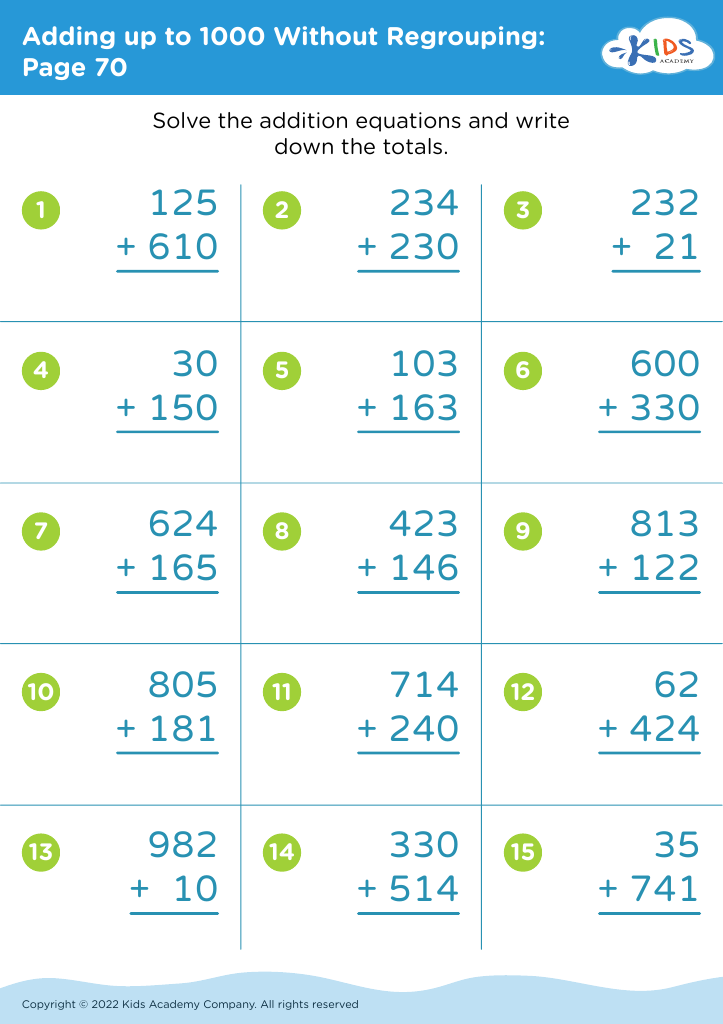Basic Addition Adding up to 1000 Without Regrouping Worksheets for Ages 3-7
4 filtered results
-
From - To
Explore our engaging "Basic Addition Adding Up to 1000 Without Regrouping Worksheets" designed specifically for children ages 3-7. These worksheets provide a fun and interactive way for young learners to grasp essential math skills. By focusing on straightforward addition techniques, children will confidently enhance their understanding of numbers and improve their problem-solving abilities. These resources incorporate colorful illustrations and age-appropriate challenges to keep little minds engaged. Ideal for both classroom and home use, our worksheets foster independence and lay a strong foundation for future math success. Start your child's journey in mastering basic addition today with our comprehensive collection!
Teaching basic addition up to 1000 without regrouping to children aged 3-7 is essential for several reasons. First, it builds a strong foundation in mathematics, which is crucial for later academic success. When children understand simple addition, they are better prepared to tackle more complex mathematical concepts in higher grades. Learning to add without regrouping also emphasizes mental math skills, enhancing children's ability to perform calculations in their head, which is vital in daily life.
Moreover, engaging with numbers boosts cognitive development, fostering problem-solving abilities and logical thinking. When children interact with addition through hands-on activities and games, they develop a positive attitude towards learning math, reducing anxiety about the subject as they progress in their education.
Additionally, addition skills contribute to essential life skills, such as budgeting and time management. Instilling confidence with numbers at an early age prepares children for future challenges beyond academics. Teachers and parents play a crucial role in encouraging practice through activities that blend fun and learning, reinforcing these skills seamlessly into everyday routines. Investing time in teaching basic addition ultimately lays down a powerful framework that enhances children's overall learning experiences and personal growth.














